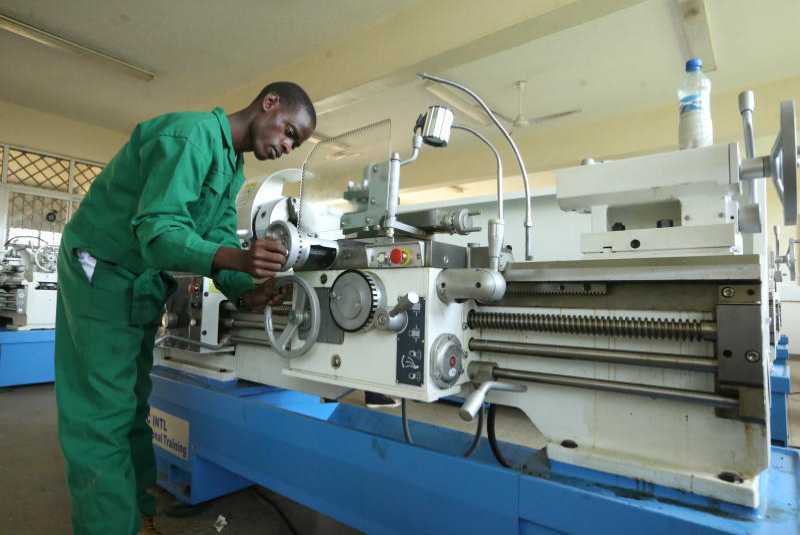
The Ministry of Education, under the government’s direction, has revealed plans to establish factories within Technical and Vocational Education and Training (TVET) institutions, leveraging the availability of raw materials on campus. This initiative aims to support the implementation of competence-based education in the country.
The ministry is actively seeking strong partnerships to explore various business opportunities as the TVET sector continues to grow. Education Cabinet Secretary Ezekiel Machogu stated that establishing factories within colleges offers a profitable model that facilitates both training and business opportunities.
This plan was unveiled during a conference organized by the German Federal Ministry for Economic Affairs and Climate Action and the Delegation of German Industry and Commerce for Eastern Africa. The ministry highlighted partnership opportunities, emphasizing the goal of achieving a symbiotic relationship between the industry and TVET institutions. This collaboration would involve the institutions providing solutions to industrial challenges and leading in research and innovations, in conjunction with industry players.
The ministry also aims to integrate ICT into TVET learning, incorporate special needs education and training, and elevate the TVET sector to a world-class standard. These efforts will position TVET institutions as global destinations for trainees, attracting learners from around the world and establishing themselves as benchmarking destinations.
Partnerships in providing accommodation were identified as a significant opportunity, particularly in marginalized regions lacking sufficient enrollment due to a lack of lodging facilities. The government is open to exploring Public-Private Partnerships that leverage available land and the student population in these institutions.
Additionally, there are opportunities for infrastructural development, modernization of equipment, establishment of incubation and innovation centers, foreign direct investment in new TVET institutions, and digitization.
The conference highlighted the benefits of adopting a dual vocation training system, which emphasizes practical on-the-job training (70%) along with theoretical training (30%). This system aligns labor market needs with training requirements.
Dr. Muoria, the Principal Secretary of the State Department for Technical and Vocational Education and Training, encouraged the German delegation to invest in business opportunities aligned with the successful dual training model, which has effectively bridged the gap between academia and industry in Germany.
